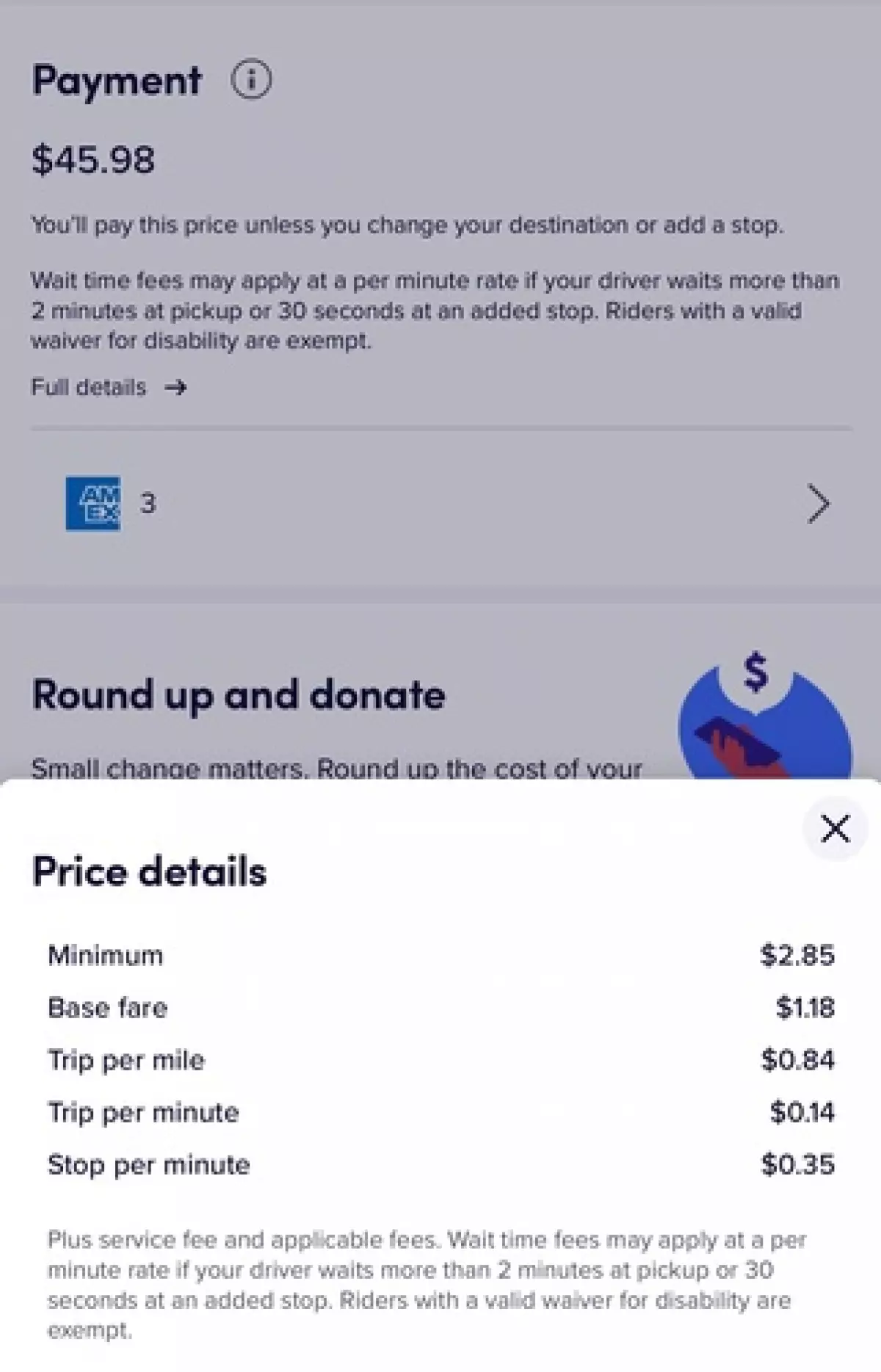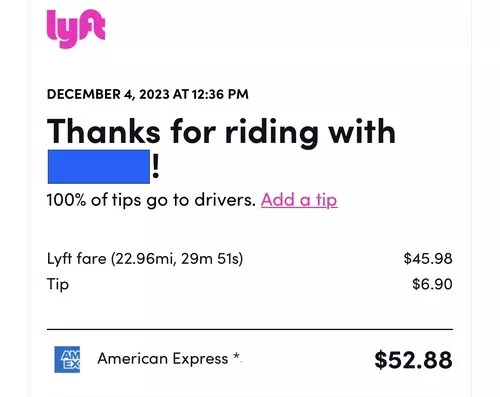Do you rely on rideshare services like Lyft for your travels? If so, you might want to pay attention. We've recently uncovered a shady tactic used by Lyft to quietly add extra fees to your base fare while keeping you in the dark about the true costs.
Let's take a recent ride I had from Orlando International Airport (MCO) as an example. The airport recently increased its mandatory per-ride surcharge to a staggering $7, one of the highest fees in the country. However, when you check Lyft for the rates of ride options from the airport, the app conveniently fails to disclose the rideshare surcharge or any other additional charges that may be tacked onto your bill. It's only in the fine print, tucked away under "plus service fee and applicable fees," that you'll find a vague mention of these extra costs.
This lack of transparency poses a significant problem for consumers. By obscuring the true costs associated with its service, including taxes, Lyft limits your ability to make an informed decision and compare prices with other transportation options.
 Image: Lyft hiding the true amount of extra fees
Image: Lyft hiding the true amount of extra fees
Even if you dig around Lyft's website (not the app), the information regarding extra surcharges is buried at the very bottom of the page. While it acknowledges the existence of the fee, it conveniently fails to mention the actual amount. The page states that the fee "may not be included in your initial fare estimate," but promises that "you will see it on your ride receipt."
However, despite this promise, the app-generated receipt doesn't provide any details about the built-in fees. It only shows a lump sum labeled "Lyft Standard fare." Even if you request a receipt via email, it still fails to provide a breakdown of the taxes and fees paid, listing only a total fare amount and the tip.
 Image: Lyft receipt without itemized taxes and fees
Image: Lyft receipt without itemized taxes and fees
To make matters worse, Lyft's customer service agents are unable to provide an itemized breakdown of the charges. This means that customers, like myself, are left in the dark about how much of our payment goes to Lyft, the driver, and the additional fees and surcharges. In comparison, Lyft's primary competitor in the U.S., Uber, has a better track record of disclosing cost breakdowns to its customers.
So, how can we obtain an honest disclosure of Lyft's fees? When we reached out to Lyft, a company spokesperson acknowledged that their FAQ page regarding airport fees is outdated and doesn't reflect the change to upfront pricing. They assured us they would update the page immediately. However, when it comes to revealing the exact breakdown of fees, Lyft falls short. The spokesperson pointed us to their help page, which vaguely mentions "any local fees like rideshare taxes, surcharges, and airport fees." In other words, Lyft won't provide a clear breakdown of how much of your "quoted fare" is made up of extra fees.
 Image: Lyft hiding the true amount of extra fees
Image: Lyft hiding the true amount of extra fees
We reached out to the Greater Orlando Aviation Authority, which operates MCO, and they confirmed the existence of the $7 rideshare fee. They explained that the fee is charged to rideshare companies to offset costs associated with ground transportation and maintenance. The representative emphasized that the fee is not a customer fee, regardless of whether Uber and Lyft pass it on to customers. While this may be technically true, it still doesn't change the fact that consumers are left unaware of these additional charges.
Unfortunately, this lack of transparency is not illegal. U.S. consumer protections are notoriously weak, making it challenging to hold companies accountable for their lack of disclosure. However, the Federal Trade Commission (FTC) states that a company may be in violation of the law if it does not provide complete and truthful information about its charges or misleads consumers about its products, services, or charges. We hope that by shedding light on this issue, Lyft will reconsider its approach and prioritize transparency for its customers.
In conclusion, if you're a Lyft user, it's essential to be aware of these hidden fees. While transparency is crucial in any industry, it becomes even more critical when it comes to your hard-earned money. As consumers, let's demand higher standards and advocate for clear and honest disclosure from companies like Lyft. Your wallet will thank you.
Note: This article is for informational purposes only and does not constitute legal or financial advice. Please consult with a professional for specific guidance.

















